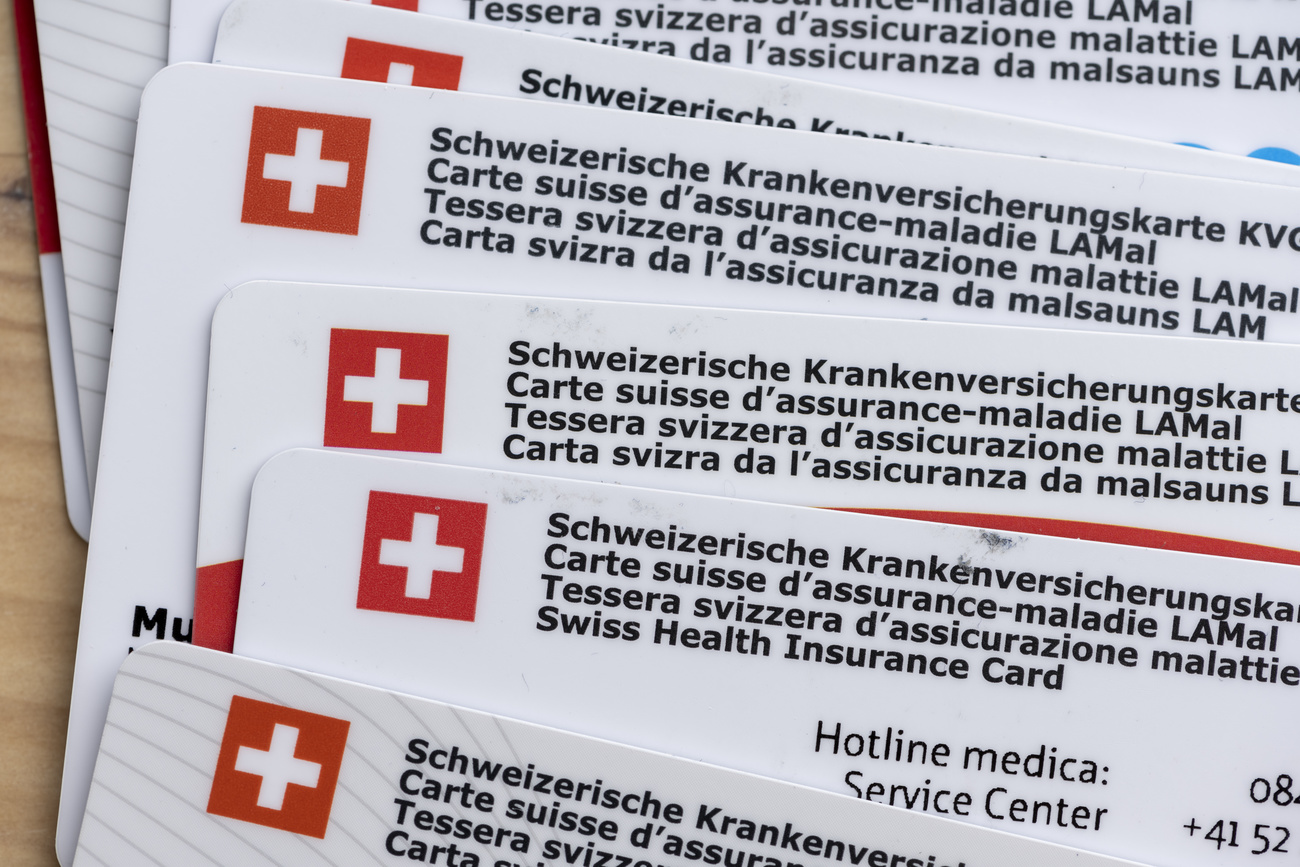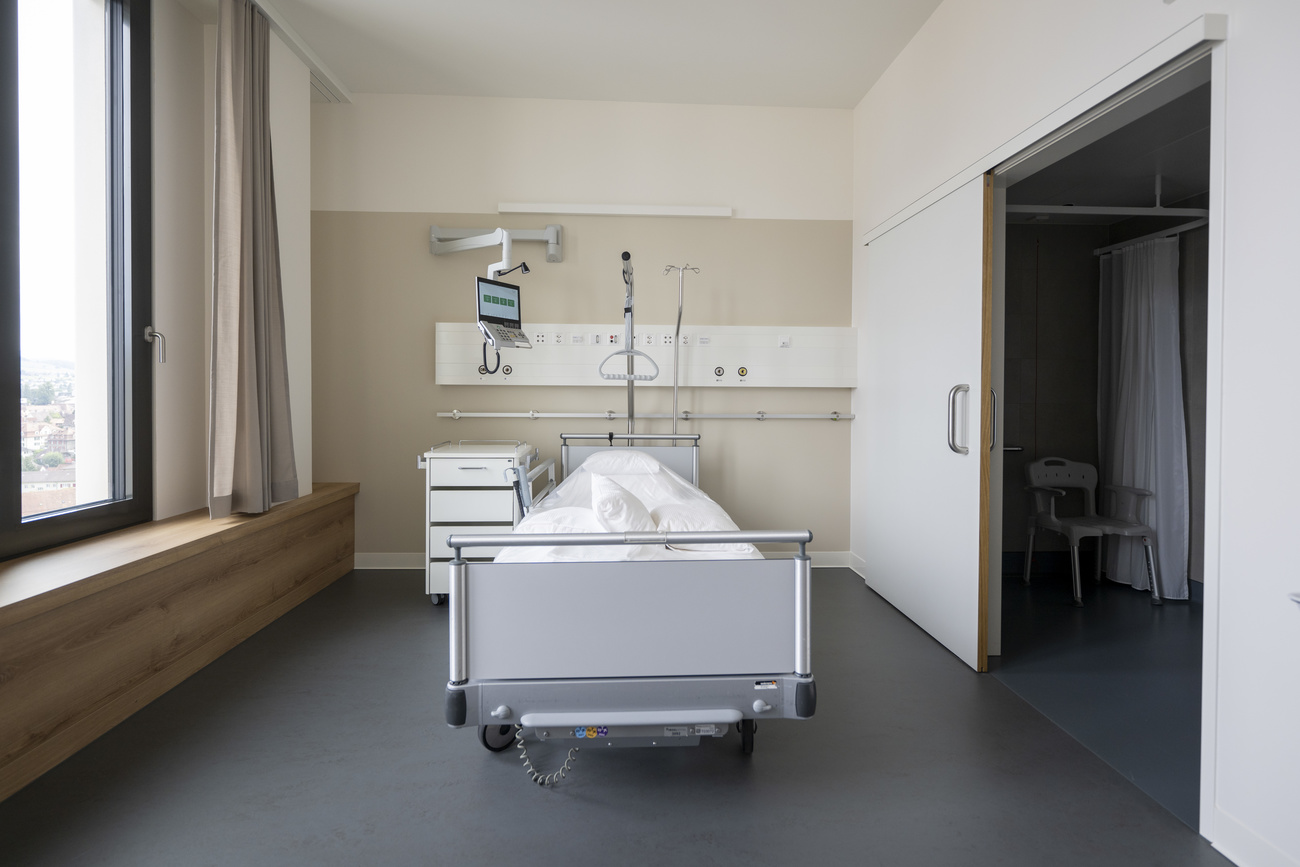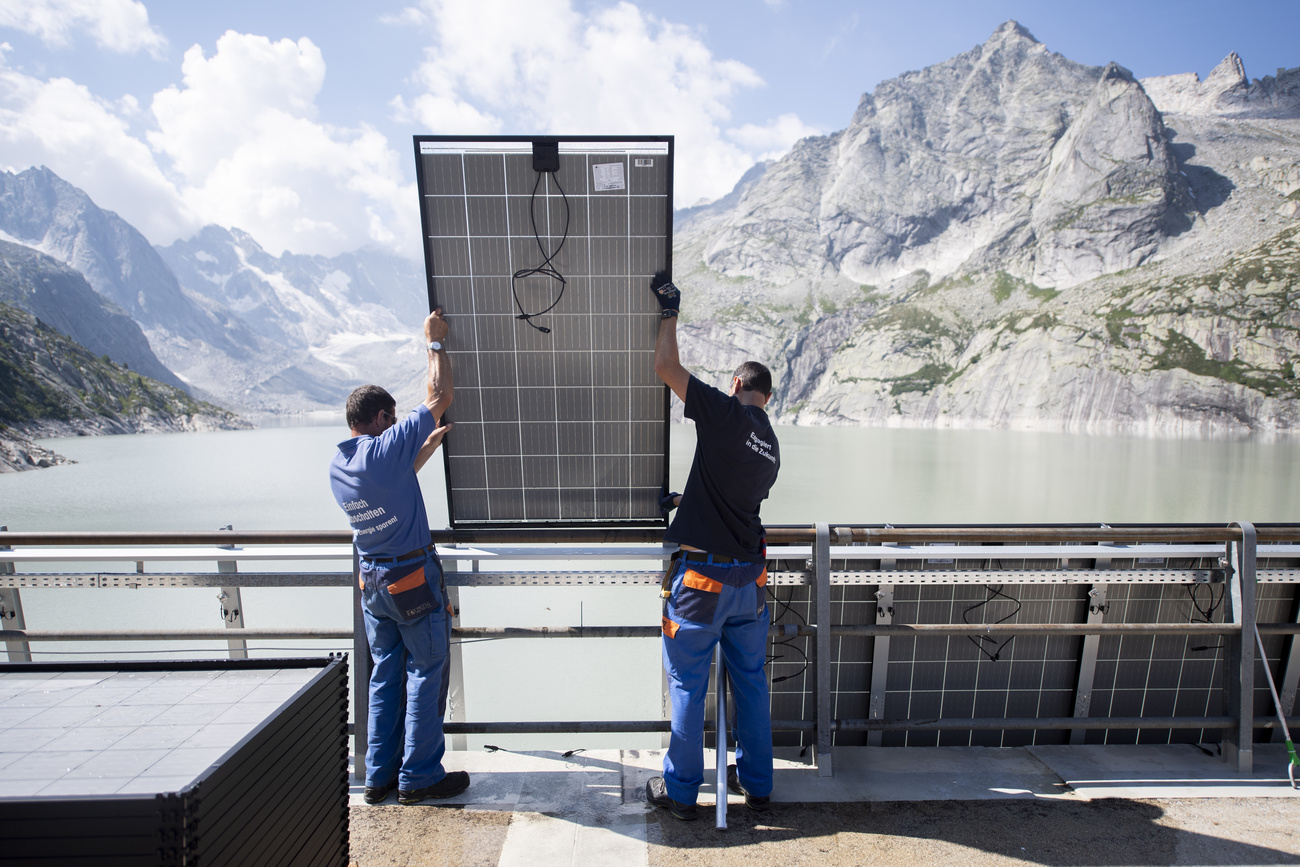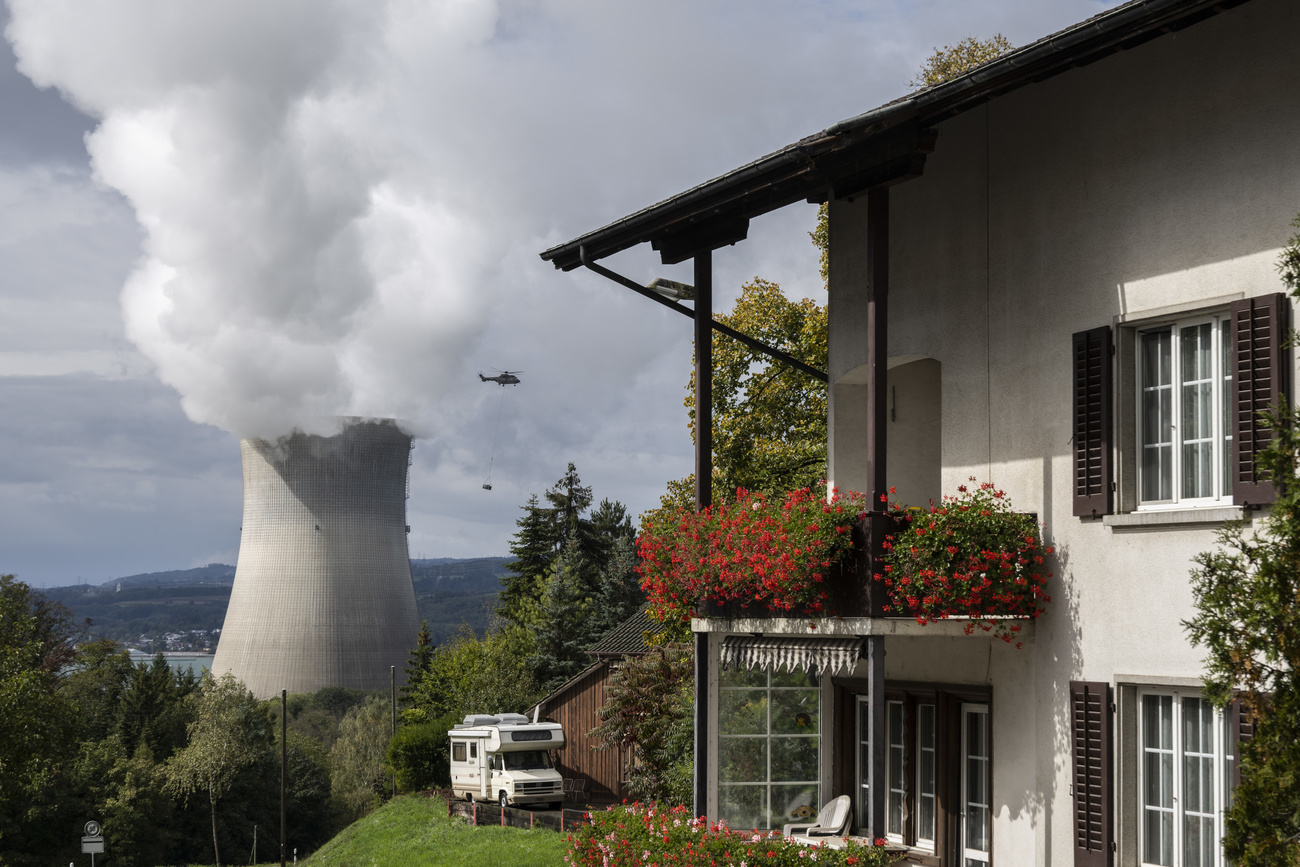
Swiss federal votes on June 9
Two initiatives aimed at limiting healthcare costs took centre stage when Swiss voters went to the polls on June 9. Citizens also decided on a new electricity law and on a proposal to cement in law the right to refuse vaccination.
All issues were rejected apart from the electricity law.

More
June 9, 2024 votes: results from across Switzerland
The relentless increase in the cost of mandatory health insurance is a major concern for the Swiss population. As a result, political parties are now trying to address the issue, and on June 9, two separate initiatives were on the voting agenda.

More
Swiss voters reject limits on healthcare spending
One of the people’s initiatives, launched by the left-wing Social Democratic Party, wanted to limit the cost of health insurance premiums to 10% of a household’s income. To achieve this, it proposed that the state pick up the slack with subsidies whenever somebody exceeds this proportion. According to the plan, at least two-thirds of the new financial help would come from the federal budget, with the rest being paid by the country’s 26 cantons.
Above all, the Social Democrats want to help those who are currently struggling to pay their health insurance bills. However, the initiative also aimed to level the playing field: subsidies in this area already exist to some degree, but their amount differs considerably from region to region.
Only 44% of voters ended up backing it.

More
Six lessons from Swiss healthcare vote
The Centre Party had another proposal for reining in costs and easing the burden on households. Its plan involved the introduction of a “brake” on healthcare costs which would be implemented according to the state of the economy and salary levels.
Federal authorities would have to take action if and when the rise in healthcare spending exceeds the rise in salaries by over 20%. However, the initiative gave no indication of exactly what measures authorities would then have to take to rein in the costs.
The Centre Party argued that the mechanism would force all actors involved in the healthcare sector to implement cost-saving solutions which have already long been available. But its initiative also has scant support: no other major political group is behind it.
Ultimately only 37% of voters backed it.
More
In Switzerland, the spike in healthcare costs particularly affects households, which – via their premium payments – finance a quarter of the whole healthcare system.
This proportion is above average for countries in the Organisation for Economic Co-operation and Development (OECD). In France, households pay for just 9.3% of healthcare costs; in Germany the figure is 12.7%, and in Italy 23.3%.
The Swiss healthcare system is not only one of the most expensive in the world, it’s possibly one of the most complex. It is based on a mixture of public and private elements, with private health insurers operating in a heavily regulated market. And while cantons are largely responsible for healthcare policy, certain aspects are overseen at the federal level.

More
Is there an answer to Switzerland’s spiralling healthcare cost misery?
The other big item on June 9 was the new electricity law. This major reform, agreed by parliament in September 2023, aimed to boost the development of renewable energy and guarantee the security of the country’s electricity supply, above all in winter.

More
Electricity law isn’t enough for Switzerland to achieve climate goals
The law says that, by 2035, at least 35 terawatt hours (TWh) of electricity should be produced by renewables, and 39 TWh by hydropower. To achieve this, regulations have been eased to speed up the building of big hydro, solar and wind installations. Interest in their construction outweighs concerns about protecting the environment, the law suggests.
This last point is where things get controversial. The Franz Weber foundation, along with other small environmental and landscape groups, managed to collect enough signatures to force a referendum. They reckon the new rules present a threat to the environment.
However, 69% of voters disagreed, approving the law.

More
Switzerland needs energy, but what kind?
Faced with both climate and energy difficulties, nuclear energy could meanwhile be about to stage a grand comeback. In some countries this is already the case: Japan, for example, has restarted some plants, while France, Belgium and Finland have decided to extend the lifespan of their nuclear facilities.
After the Fukushima nuclear disaster in 2011, the Swiss government decided to phase out nuclear power. Six years after voters approved this plan, the debate is back on the table. Many people on the right of the political spectrum think the transition to an energy supply without fossil fuels cannot be achieved via solar and wind power alone.

More
Explainer: Is nuclear energy poised for a comeback?
Finally, Swiss voters also had their say on a people’s initiative entitled “for freedom and physical integrity”. Launched by a libertarian movement during the Covid-19 pandemic, the text notably aimed at ruling out all obligations to vaccinate: refusing to get a jab should never lead to a punishment or to social/professional drawbacks, the movement says.
The right-wing Swiss People’s Party is the only major group to back the initiative. A general lack of voter enthusiasm for the idea probably stems from the fact that, in Switzerland, it’s already the case that nobody can be forced to get vaccinated against their will.
Only one in four voters backed the initiative.
The two initiatives to limit health insurance premiums and curb healthcare costs have lost ground during the campaign, according to the second poll by the Swiss Broadcasting Corporation (SBC), published on May 29. Acceptance of the electricity law is becoming clearer, as is rejection of the anti-vaccination initiative.

More
June 9 votes: Swiss government ‘clearly understood’ public mood
Adapted from French by Domhnall O’Sullivan/ts

In compliance with the JTI standards
More: SWI swissinfo.ch certified by the Journalism Trust Initiative







